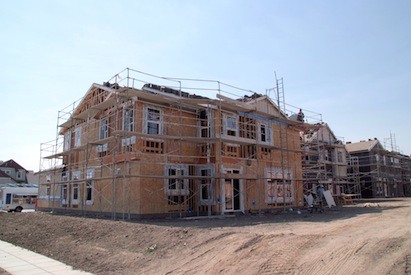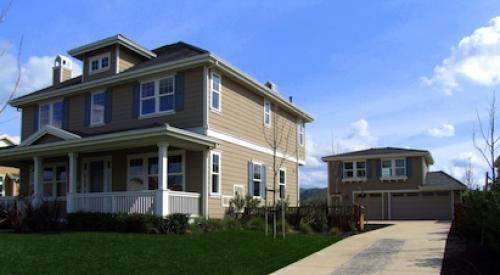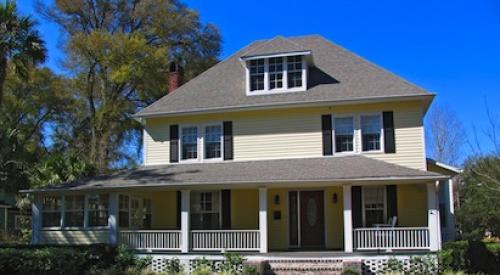Builder confidence in the market for newly built single-family homes hit a significant milestone in June, surging eight points to a reading of 52 on the National Association of Home Builders/Wells Fargo Housing Market Index (HMI). Any reading over 50 indicates that more builders view sales conditions as good than poor.
"This is the first time the HMI has been above 50 since April 2006, and surpassing this important benchmark reflects the fact that builders are seeing better market conditions as demand for new homes increases," said NAHB chairman Rick Judson, a home builder and developer from Charlotte, N.C., in a statement. "With the low inventory of existing homes, an increasing number of buyers are gravitating toward new homes."
The eight-point jump in the index was the biggest one-month gain since August and September of 2002, when the HMI recorded a similar increase of eight points.
"Builders are experiencing some relief in the headwinds that are holding back a more robust recovery," said NAHB chief economist David Crowe. "Today's report is consistent with our forecast for a 29-percent increase in total housing starts this year, which would mark the first time since 2007 that starts have topped the 1-million mark."
Derived from a monthly survey that NAHB has been conducting for 25 years, the NAHB/Wells Fargo Housing Market Index gauges builder perceptions of current single-family home sales and sales expectations for the next six months as "good," "fair," or "poor." The survey also asks builders to rate traffic of prospective buyers as "high to very high," "average," or "low to very low." Scores from each component are then used to calculate a seasonally adjusted index where any number over 50 indicates that more builders view conditions as good than poor.
All three HMI components posted gains in June. The index gauging current sales conditions increased eight points to 56, while the index measuring expectations for future sales rose nine points to 61 - its highest level since March 2006. The index gauging traffic of prospective buyers rose seven points to 40.
The HMI three-month moving average was up in three of the four regions, with the Northeast and Midwest posting a one-point and three-point gain to 37 and 47, respectively. The South registered a four point gain to 46 while the West fell one point to 48.
HMI tables can be found at www.nahb.org/hmi. More information on housing statistics is also available at www.housingeconomics.com.
PB Topical Ref













